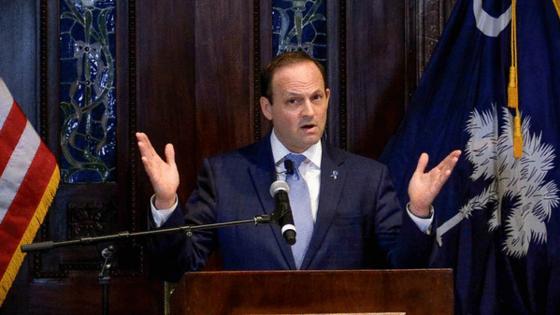One transgender SC student still can choose school bathroom, US high court says
Published in News & Features
One transgender student from the Charleston area can still use the bathroom of his choice after a Wednesday U.S. Supreme Court order.
South Carolina Attorney General Alan Wilson and state Superintendent Ellen Weaver had asked the highest court in the U.S. to block a federal injunction that allowed one Berkley county student to use the bathroom that aligned with his gender in late August. The Supreme Court denied the emergency request to block an injunction Wednesday, but it did not weigh in on the legality of South Carolina’s bathroom restrictions.
The legal group representing the student, Public Justice, celebrated the decision Wednesday.
“Today’s decision from the Supreme Court reaffirms what we all know to be true: Contrary to South Carolina’s insistence, trans students are not emergencies,” said Alexandra Brodsky, a litigation director for Public Justice, in a Wednesday statement. “They are not threats.”
For two years, South Carolina lawmakers included a one-year budget item that removes some state funding for school districts that allow students to use multistalled bathrooms or changing rooms that don’t match the student’s gender assigned at birth. Proponents of the policy say it protects the privacy and safety of students, but LGBTQ+ rights advocates say the ban restricts trans students from accessing education.
A day before the new school year started, a federal appeals court injunction allowed John Doe, an anonymous transgender teenager in Berkeley County, to use his preferred bathroom at school while a case to determine whether the S.C. rule violated federal civil rights law proceeded.
Doe previously left public school after he was punished for using his preferred bathroom. His family decided remote education was inferior and enrolled him in public high school for the 2025-26 school year, according to court documents.
He will be allowed to use the bathroom of his choice at least until the courts decides whether the bathroom restrictions are legal.
“We may have lost this battle, but we believe we will ultimately win the war,” said Wilson in an email from a spokesperson to The State. “We will continue this fight at the Fourth Circuit and, if necessary, take it all the way to the U.S. Supreme Court. We are confident the law is on our side and will be upheld in the end.”
Supreme Court justices Clarence Thomas, Samuel Alito and Neil Gorsuch would have granted Wilson and Weaver’s emergency application, according to the order.
_____
©2025 The State. Visit thestate.com. Distributed by Tribune Content Agency, LLC.







Comments